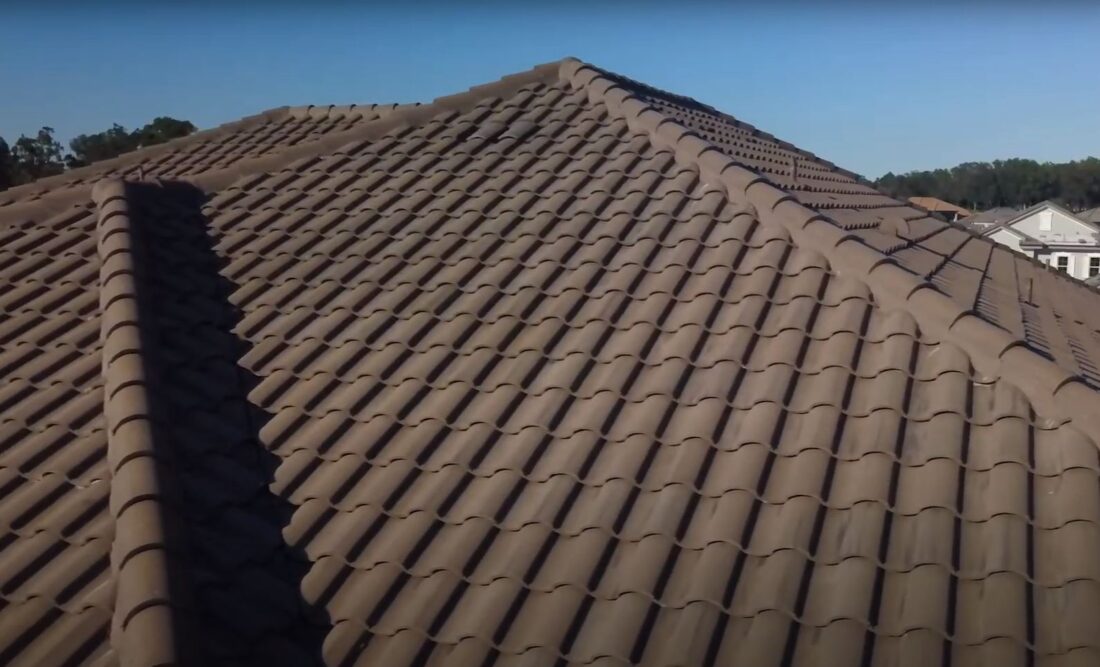Comparing the Weight of Concrete Tiles with Other Roofing Materials
Concrete Tiles: A Reliable Roofing Option in Auckland
In the realm of roofing materials, Herne Bay residents and homeowners across Auckland often find themselves contemplating the weight of their roofing options. Concrete roof tiles, while known for their durability and longevity, come with their own weight-related considerations. In this article, we’ll explore how concrete tiles stack up in terms of weight compared to other roofing materials commonly used in Auckland, delve into mitigation measures against salt corrosion, and discuss health and safety aspects, as well as exceptions and alternative roofing options.
Understanding Concrete Tiles
Concrete tiles are a popular roofing choice in Auckland due to their robustness and aesthetic appeal. However, they are not the lightest option available. The weight of concrete tiles varies depending on factors such as their thickness and design. On average, concrete tiles weigh between 9 to 12 kilograms per square meter.
Comparing Concrete Tiles with Other Roofing Materials
Concrete vs. Asphalt Shingles:
- Concrete roof tiles are heavier than asphalt shingles, which typically weigh around 7 to 9 kilograms per square meter.
- While asphalt shingles are lighter, concrete tiles offer greater durability and resistance to harsh weather conditions, making them ideal for the Auckland climate.
Concrete vs. Metal Roofing:
- Metal roofing, including steel and aluminum, is lighter than concrete tiles, with weights ranging from 3 to 6 kilograms per square meter.
- Metal roofing is well-suited for applications where weight is a concern, but it may not provide the same longevity as concrete tiles.
Concrete vs. Clay Tiles:
- Clay tiles are comparable in weight to concrete tiles, weighing around 10 to 12 kilograms per square meter.
- Both concrete and clay tiles are known for their durability, but concrete tiles are often more cost-effective.
Mitigating Salt Corrosion with Concrete Tiles
In coastal areas like Auckland, salt corrosion is a significant concern for roofing materials. To reduce the risk of salt corrosion with concrete tiles:
- Regularly clean the tiles to remove salt deposits.
- Apply a protective sealant to the tiles to create a barrier against saltwater intrusion.
- Ensure proper installation to prevent moisture penetration, which can exacerbate salt corrosion.
Health and Safety Considerations
When working with roofing materials, safety is paramount:
- Use appropriate Personal Protective Equipment (PPE) like gloves and helmets to prevent injury during installation and maintenance.
- Exercise caution when walking on the roof to avoid accidents and falls.
Exceptions and Alternative Roofing Options
While concrete tiles offer durability and aesthetics, there are exceptions where lighter roofing materials may be preferred:
- In cases of weak roof structures, lighter materials like metal roofing may be chosen to prevent overloading.
- Architectural design and personal preferences may also influence the choice of roofing material.
Conclusion
Concrete tiles are a reliable and durable roofing choice in Auckland, including suburbs like Herne Bay. While they are heavier than some alternatives, their longevity and resistance to the Auckland climate make them an excellent option. To make an informed decision for your roofing project, consult with concrete roof tiler experts like My Roofers Auckland, who can provide tailored solutions to meet your needs and ensure a lasting and secure roof for your property.
Concrete Roof Tile Weight: Frequently Asked Questions
How Heavy Are Concrete Tiles Compared to Other Roofing Materials? Concrete tiles weigh between 9 to 12 kilograms per square meter, heavier than asphalt shingles but comparable to clay tiles.
Are Concrete Tiles Suitable for Coastal Areas like Herne Bay? Yes, concrete tiles can withstand coastal conditions, but proper maintenance and mitigation measures against salt corrosion are necessary.
What Are the Advantages of Concrete Tiles Over Asphalt Shingles? Concrete tiles offer superior durability and weather resistance compared to asphalt shingles, making them ideal for Auckland’s climate.
Can Concrete Tiles Be Used on Weak Roof Structures? In some cases, lighter roofing materials may be preferred on weak roof structures to prevent overloading.
How Do I Mitigate Salt Corrosion with Concrete Tiles? Regular cleaning, protective sealants, and proper installation are key to reducing salt corrosion risk.
Is Metal Roofing a Lighter Alternative to Concrete Tiles? Yes, metal roofing is lighter, weighing between 3 to 6 kilograms per square meter, making it suitable for weight-sensitive applications.
Are Clay Tiles Heavier Than Concrete Tiles? Clay tiles are comparable in weight to concrete tiles, both weighing around 10 to 12 kilograms per square meter.
What Are the Safety Precautions When Working with Roofing Materials? Use proper Personal Protective Equipment (PPE) and exercise caution when walking on the roof to prevent accidents and falls.
Can I Install Concrete Tiles Myself? Concrete tile installation requires expertise; it is recommended to engage professionals for proper installation.
Are There Roofing Materials Lighter Than Asphalt Shingles? Yes, metal roofing is lighter than asphalt shingles, with weights ranging from 3 to 6 kilograms per square meter.
How Do Concrete Tiles Compare to Metal Roofing in Terms of Durability? Concrete tiles offer greater durability compared to metal roofing and are better suited for Auckland’s climate.
What Factors Influence the Choice Between Concrete and Clay Tiles? Architectural design and personal preferences play a role in choosing between concrete and clay tiles, both of which are durable options.

